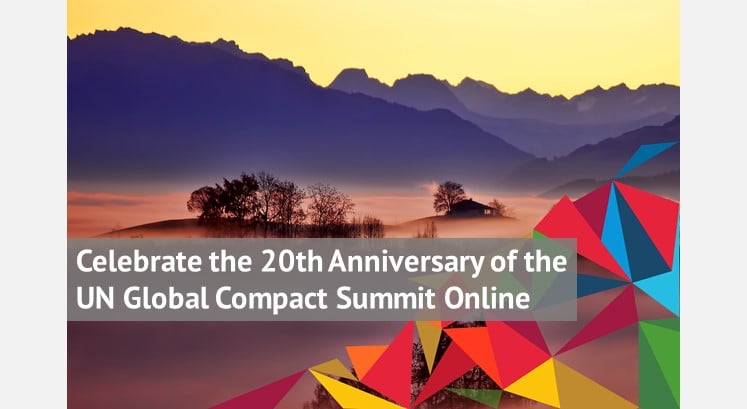The UN Global Compact challenges COVID-19
Under the restrictions on movement imposed by the COVID-19 pandemic around the world, the United Nations Global Compact Leaders Summit celebrated its 20th anniversary of uniting businesses for a better world. Under the theme “Recover Better, Recover Stronger, Recover Together” on June 15, for two days online, we witnessed a celebration of Sustainability.
The United Nations Global Compact Leaders Summit promised to be bigger, better, and more inclusive than any other event aimed at business leaders committed to addressing societal challenges and promoting sustainable development goals (SDGs). Indeed, over 26 continuous hours and more than 100 virtual global, regional, and local sessions. The summit was the largest, the most comprehensive United Nations meeting so far, and the most inclusive, with over 20,000 participants from over 180 countries, which participated in their local time zones and languages.
The United Nations Global Compact Leaders Summit brought together thousands of business leaders, Heads of State, UN officials and Chief Executive Officers in a joint effort to define how business, civil society, Governments and the UN can collaborate to “Recover Better, Recover Stronger, Recover Together,” from three unprecedented and interconnected global crises “Health, Inequality and Climate change.”
Highlights of the 20th-anniversary Leaders Summit
At the summit, business leaders, civil society, governments and the United Nations were challenged to reflect on the importance of cooperation and partnerships between the public and private sectors and to increase their ambition to achieve the SDGs. With over 100 SDG targets linked to infrastructure, the UN Global Compact launched a Platform for Action on “Sustainable Infrastructure for the Belt and Road Initiative to Accelerate the SDGs.” It’s expected to affect 60% of the world’s population, 40% of world trade, and 30% of the global Gross Domestic Product.
During the sessions, the progress report UN Global Compact 20th-Anniversary Progress Report: Uniting Business in the Decade of Action was issued. The report provides an analysis of the progress made by companies over the past 20 years in integrating the ten principles of the UNGC into their strategies and operations. It also focused on how alignment with the ten principles of the UNGC can contribute to achieving the 17SDGs. In general, the report found that awareness of the SDGs is high, as companies engage in focusing on the SDGs most relevant to them. However, although a large proportion of the companies participating in the UN Global Compact take measures on the SDGs, less than half of the companies integrate them into their core business or have targets that are sufficiently ambitious, science-based, or in line with societal goals.
Additional resources launched at the event include the SDG Ambition: Introducing Business Benchmarks for the Decade of Action report. The report includes an initial set of best business practices standards to measure whether corporate activities are aimed at the necessary level of ambition to achieve the SDGs. It aims to enable the world’s leading companies to adopt ambitious goals and to promote the integration of SDGs into core business management, business operations and IT landscape.
The UN Global Compact also launched the case example report Leadership for the Decade of Action, which identifies the unique characteristics shared by leaders who integrate Sustainability across strategy, operations, and stakeholder involvement possess. The report reveals that to achieve the 2030 Agenda for Sustainable Development, business leaders must look beyond short term profits and elevate Sustainability and resilience a business priority – both inside and outside their companies and broader ecosystems.
A call to action for the 2030 Agenda
Less than 4,000 days separate us from the 2030 milestone. Will companies and governments be able to stick to the promise of the 2030 Agenda and transform their commitments into actions that can lead to tangible improvements? Now is the time for leaders to speak up, raise their standards and act responsibly to meet the needs of society and the planet. We trust that as Sanda Ojiambo of Kenya takes over from Denmark’s Lise Kingo as Executive Director, a new promising era for the UN Global Compact starts.
Photo credits: unglobalcompact.org

